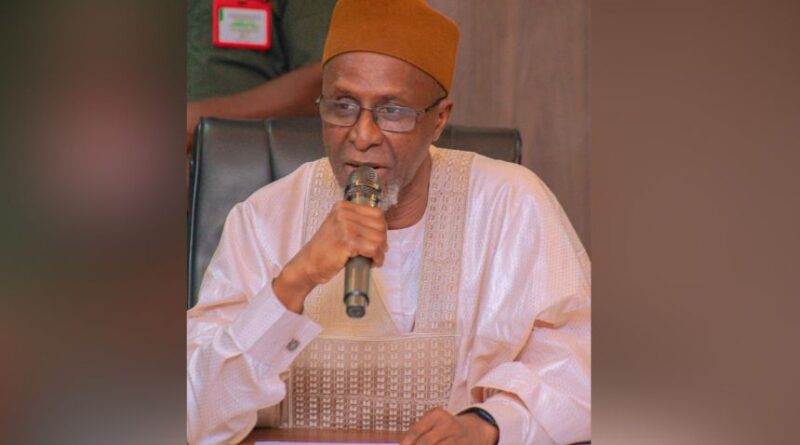FAO,Environment Ministry plan to restore 350,000 hectares of degraded areas.
The Food and Agricultural Organisation (FAO) and the Ministry of Environment are collaborating to rehabilitate 350,000 hectares of degraded landscapes for the country’s environmental sustainability.
The Minister of Environment, Malam Balarabe Lawal, announced this on Wednesday during a contract signing event in Abuja.
He stated that 350,000 hectares of land would be reclaimed in 19 Agro-Climatic Resilience in Semi-Arid Landscape (ACReSAL) states and the Federal Capital Territory (FCT).
“I am glad that this engagement for technical support to repair large-scale landscapes will result in demonstrable results towards a healthy ecosystem.”
“The significance of landscape restoration activities cannot be overstated, particularly in the context of our environmental health and its visible influence on the livelihoods of communities throughout Nigeria’s northern region.”
“We are all aware that this contract signing signifies a legal commitment and represents a shared vision for a more resilient and sustainable future.”
According to him, the project’s implementation reflected a common dedication to a sustainable practise and a drive to have a positive impact on our environment.
“Northern Nigeria, with its diverse biodiversity and cultural legacy, faces major challenges that necessitate creative and collaborative solutions.”
“It is a fantastic success to see the FAO and our partners, the World Bank, commit to addressing these difficulties by increasing community capacity to adapt and mitigate the challenges through this ground-breaking effort.”
“As we commemorate this milestone today, let us remember the responsibilities that come with it; the success of our engagement will be dependent on our combined efforts, perseverance, and ability to adjust to changing conditions.”
“As we strive towards a common objective of restored and resilient landscapes across the 19 ACReSAL States and the FCT, let us create a culture of collaboration, innovation, and inclusivity,” the minister added.
Earlier, Dominique Koffy Kouacou, FAO Representative ad interim in Nigeria and ECOWAS, stated that FAO was dedicated to continuing to support the government, and particularly the ministry, in protecting the environment and conserving Nigeria’s immense natural resources.
“The goal of ACReSAL is to expand the use of sustainable landscape management practises in specified watersheds in northern Nigeria, as well as to build Nigeria’s long-term enabling environment for integrated climate resilient landscape management.”
“The agreement we are signing today is significant to FAO because the goal is to provide the necessary technical expertise for the development and implementation/upscaling of the landscape restoration subcomponent of the ACReSAL Project in collaboration with the African Union’s Great Green Wall Sahel-wide initiative.”
“By designing training materials and curricula tailored for restoration and value chain development, this technical assistance will undoubtedly improve the development and delivery of resilience for land restoration and Climate Smart Agriculture knowledge and services to both the federal, state, and community levels,” he said.
The FAO spokesman noted that the technical help would complement the efforts sponsored by the African Union’s Great Green Wall Sahel-wide programme.
Mr Abdulhamid Umar, ACReSAL’s National scheme Coordinator, stated that the scheme would help farmers in dry areas.
He stated that the project would address carbon emissions, greenhouse gas emissions, unemployment issues, and poverty.
According to Umar, the initiative is built on four pillars: dry land management, community climate resilience, institutional policy enhancement, and project management.
Ms Joy Agene, World Bank Representative, stated that the initiative was a commitment to help Nigeria restore 350,000 hectares of degraded land through ACReSAL.
She stated that the World Bank would work with stakeholders to achieve an efficient project execution outcome.
According to the Nigerian News Agency, the Federal Ministries of Environment, Water Resources, and Sanitation, as well as the National Great Green Wall Agency, are co-leading the project’s implementation.




